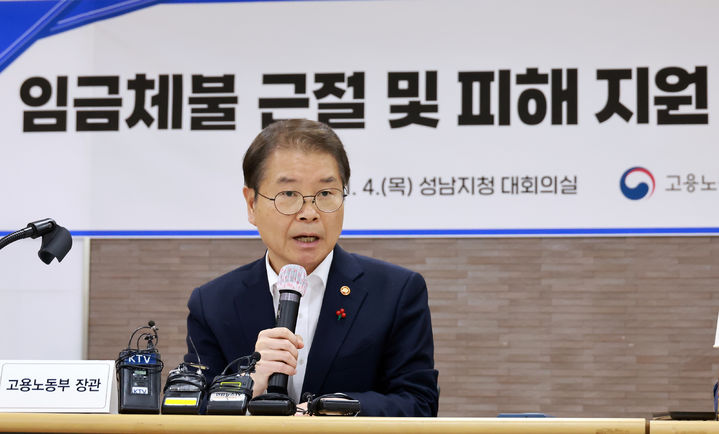[동아시아포럼] 일본 농업에 있어 근로조건 개선의 중요성
「일하는 방식 개혁을 추진하기 위한 관계 법률의 정비에 관한 법률」 도입, 정작 농업은 뒷전 가족 사업에서 기업 중심으로… 농업의 근대화 진행중 근로 환경 개선 필수적… 외국인 근로자 수급도 한계
[동아시아포럼]은 EAST ASIA FORUM에서 전하는 동아시아 정책 동향을 담았습니다. EAST ASIA FORUM은 오스트레일리아 국립대학교(Australia National University)의 크로퍼드 공공정책 학교(Crawford School of Public Policy) 산하의 공공정책과 관련된 정치, 경제, 비즈니스, 법률, 안보, 국제관계 및 사회에 대한 분석 및 연구를 위한 플랫폼입니다.
저희 폴리시코리아(The Policy Korea)와 영어 원문 공개 조건으로 콘텐츠 제휴가 진행 중입니다

요시카와 유사쿠(吉川祐作)는 JIN 코퍼레이션의 사업부 컨설턴트입니다. 아프리카에서 일본의 농업 공적개발원조(ODA) 프로젝트에 참여하고 있으며 네덜란드 와게닝겐(Wageningen) 대학 및 연구소에서 개발 및 농촌 혁신 전공으로 석사 학위를 취득했습니다.
2019년 일본 정부는 직장 다양성을 높이고 근무 조건을 개선하기 위해 「일하는 방식 개혁을 추진하기 위한 관계 법률의 정비에 관한 법률」을 도입했습니다. 그러나 개혁이 가장 필요한 산업 중 하나인 농업 분야에서는 오히려 충분히 논의되지 않고 있습니다.
일본의 농업에 종사하는 노동 인구가 매년 5만 명씩 줄어들고 있습니다. 대부분은 부업을 겸업하는 소규모 농부들이며, 고령화 또한 좌시할 수 없는 수준입니다.
젊은 농부들은 거의 실종 상태입니다. 2021년에는 52,300명의 농부가 새로 나타났지만 그중 거의 3분의 2가 50세 이상이었습니다. 농업 종사자의 이직률도 다른 분야에 비해 높습니다. 가장 흔한 이직 사유는 근로 조건에 대한 불만, 긴 노동 시간, 낮은 소득입니다.
농림수산성(MAFF)이 ‘농업 근로 환경 개혁 검토위원회’를 개최하는 등 농업 종사자의 근로 조건을 개선하기 위해 노력하고 있지만, 개혁을 확대하기 위해서는 아직도 갈 길이 멉니다.
일본의 농업은 오랫동안 일과 삶의 경계가 모호한 ‘가족 사업’으로 여겨져 왔습니다. 일본 농림수산성이 집계한 2020년 총조사에 따르면 일본 농업 경영체의 96%가 여전히 가족 소유입니다. 반대로 고용된 근로자는 전통적으로 그다지 흔하지 않았습니다. 농업 활동은 대부분 계절에 따라 이루어지기 때문에 근로자는 보통 바쁜 수확기에만 고용됩니다. 그러나 일본의 노동기준법은 고용된 근로자에게만 적용되며 농업에 종사하는 가족 근로자는 제외됩니다.
정부 통계를 수집하는 데 사용되는 농림어업총조사에서는 농업 종사자가 연간 7개월 이상 일할 경우 취업한 근로자로 분류합니다. 그러나 이 분류는 다른 부문에서 일반적으로 사용되는 정규직과 비정규직의 구분과 일치하지 않습니다. 이러한 차이로 인해 농업 분야 근로자에 대한 법적 보호 및 규정이 다른 분야와 다르게 적용되고 있습니다.
근로기준법은 초과 근무 및 휴일 근무에 대한 추가 임금이 농업에는 적용되지 않는다고 규정하고 있습니다. 또한 이 법은 농업 노동이 계절과 기후 조건에 따라 달라질 수 있다는 점을 고려하여 근로자의 휴게 시간 및 휴일 최소 요건에 관한 규정에서 농업을 제외합니다.
특히 신규 이민자의 경우 농업 분야에서 종사하는 비율이 높습니다. 2021년 신규 농업인의 22.1%가 고용 근로자였으며, 49세 이하 신규 농업인의 경우 자영업자(7,190명)보다 고용 근로자(8,540명)가 더 많았습니다. 그럼에도 조사한 고용농의 근로 여건은 아직 개선의 여지가 많은 것으로 나타납니다. 농림수산성 정책연구원이 조사한 결과에 따르면, 농업 부문의 정규직 남성 27%와 여성 17%가 연간 300일 이상 근무하는 것으로 나타났습니다.
보고서에 따르면 이 부문에 정규직으로 고용된 근로자의 연간 소득은 다른 산업에 비해 낮습니다. 2017년 농업 부문에서 일하는 남성의 평균 연간 소득은 310만 엔(미화 2만 2,100달러)으로 다른 산업의 520만 엔(미화 3만 7,200달러)에 비해 낮았습니다. 여성도 190만 엔(미화 14,000달러)으로, 다른 산업 연평균 소득인 330만 엔(미화 23,700달러)에 비해 낮은 것으로 나타났습니다. 이러한 소득 격차는 근로자의 연령이 높아질수록 더욱 커지는 경향이 있습니다.
시간제 근로자를 포함한 비정규직 근로자의 근로 조건은 더욱 열악합니다. 2017년 농업 부문에서 남성 근로자의 46.8%, 여성 근로자의 77.8%가 정규직이 아니었습니다. 이들은 단기 계약직으로 고용되었기 때문에 연간 소득이 남성은 200만 엔(미화 2만 8,000달러), 여성은 80만 엔(미화 6,000달러)에 불과했습니다.
농업 종사자의 소득이 낮은 이유 중 하나는 농업 경영 주체(농장 또는 영농조합)가 수익을 창출하는 데 어려움을 겪고 있기 때문입니다. 이는 두 가지 주요 요인에 기인합니다. 첫째, 농산물의 시장 가격이 낮기 때문에 농산물을 판매해도 수익이 적습니다. 둘째, 비료 비용과 같은 농업 투입 비용이 증가하여 법인의 수익이 더욱 감소했습니다.
기술 인턴 연수 프로그램은 베트남, 필리핀 등의 국가에서 온 연수생들이 기술을 개발하고 새로운 기술을 배울 수 있도록 설계되었지만, 일각에서는 이 프로그램이 농업 분야에서 값싼 노동력을 확보하기 위한 수단으로 변질되었다는 비판이 제기되고 있습니다. 외국인 근로자는 더 나은 대우를 요구할 수 있는 법적 보호나 협상력이 없기 때문에 안전 기준 위반과 같은 학대의 위험에 처할 수 있습니다.
하지만 생산성과 쾌적한 작업 환경의 균형을 맞추는 몇 가지 모범 사례가 있습니다. 일부 농업 고용주들은 더 나은 숙소, 식사 제공, 레크리에이션 활동 등 편안한 근무 조건을 제공하여 외국인 근로자를 성공적으로 유치했습니다. 긍정적인 근무 환경을 통해 근로자의 만족도와 생산성을 향상시키는 동시에 학대나 착취의 위험을 줄일 수 있습니다.
근로자의 비율이 증가함에 따라 일본에서 농업은 근로 방식 측면에서 전통적인 ‘가족 사업’이 아니라 보다 일반적인 산업으로 변모하고 있습니다. 이러한 상황이 지속된다면 근로자의 복지와 고용 안정을 우선시함으로써 일본의 농업 산업은 경쟁력을 강화하고 장기적으로 노동력 부족 및 기타 문제를 해결할 수 있는 역량을 갖출 수 있습니다.
Improving working conditions in Japan’s agriculture sector
In 2019, the Japanese government introduced the Work Style Reform Law which sought to increase diversity in the workplace and improve working conditions. But reform has not been sufficiently discussed in one of the industries that needs it the most — agriculture.
Harvested ears of rice are dried in the sun in Awaji City, Hyogo Prefecture, Japan on 13 October 2022. (PHOTO: Kunihiko Miura / The Yomiuri Shimbun via Reuters Connect)
The agriculture industry in Japan has suffered a dramatic decrease in labour, with the number of farmers decreasing by 50,000 per year. The majority of them are small-scale farmers with side jobs, who are also ageing at an advanced stage.
It has been a challenge for the sector to attract young farmers. In 2021, 52,300 farmers joined but nearly two-thirds of them were over 50 years old. The turnover rate of agricultural workers is also higher than in other sectors. The most common reasons for changing jobs are discontentment with working conditions, long labour hours and low incomes.
Despite some efforts being made to improve the working conditions of agricultural workers, such as discussions by the Exploratory Committee on Work Style Reform in Agriculture organised by the Ministry of Agriculture, Forestry and Fisheries (MAFF), there is still a long way to go in extending the reforms.
Agriculture in Japan has long been considered a ‘family business’, with a blurred boundary between work and life. The 2020 Census of Agriculture and Forestry compiled by MAFF reported that 96 per cent of agricultural management bodies in Japan were still family-owned. On the contrary, employed workers have conventionally not been very common. Because farming activities are mostly seasonal, workers are usually employed only during the busy harvest season. Yet, Japan’s Labour Standards Act only applies to employed workers and excludes family workers engaged in agriculture.
Government statistics and laws related to employed workers in the agricultural sector are often different from those in other sectors. For example, the MAFF Census classification of employed agricultural workers — as employees that work more than seven months per year — does not match the commonly used distinction of regular and non-regular employment.
The Labour Standards Act stipulates that extra wages for overtime and holiday work do not apply to agriculture. The law also excludes the industry from regulations concerning the minimum requirement for break time and holidays for farmers, based on the understanding that agricultural work is subject to seasonal and climate conditions.
But employed workers in agriculture have become more common, especially for newcomers. 22.1 percent of new farmers in 2021 were employed workers. For new farmers below 49 years old, 8,540 were employed workers, outnumbering the 7,190 self-employed farmers. Still, there is a lot of room to improve farmers’ working conditions further. In 2021, MAFF’s Policy Research Institute reported that 27 per cent of men and 17 percent of women regularly employed in the agricultural sector worked over 300 days a year.
According to the report, the annual income of regularly employed workers in the sector is low compared to other industries. The average annual income for men working in the agricultural sector was 3.1 million yen (US$22,100) in 2017, compared to 5.2 million yen (US$37,200) for other industries. Women agricultural workers earned only 1.9 million yen (US$14,000) compared to an average annual income of 3.3 million yen (US$23,700). This income gap only widens as the workers’ age increases.
The working conditions for non-regular employees including part-time workers are even more challenging. In the agricultural sector, 46.8 percent of male workers and 77.8 percent of female workers were not regularly employed in 2017. Since they were hired for short-term contracts, their annual income was only 2 million yen (US$28,000) for men and 800,000 yen (US$6,000) for women.
Part of the reason for this low income is that agricultural management entities are having trouble securing profit out of the business which has suffered from low market prices of products and an increase in agricultural input costs such as fertilizer.
Foreign workers, such as the Technical Intern Training Program trainees, are also in vulnerable positions. The Program originally aimed to develop the capacity of trainees from countries like Vietnam and the Philippines but many criticize that it has become a means to secure cheap labor in the agriculture industry. The trainees cannot change their workplaces and often suffer from mistreatment, such as violations of security standards. Still, some good practices are balancing pleasant working environments with productivity. In these practices, comfortable working conditions have successfully attracted workers.
As the proportion of employed workers increases, agriculture is becoming less of a ‘family business’ in Japan and transforming into a more ordinary industry in terms of its working style. If this situation continues, improved working conditions for agricultural workers will eventually sustain the industry by contributing to solving challenges such as labor shortages.
Yusaku Yoshikawa is an aid consultant at JIN Corporation.



























